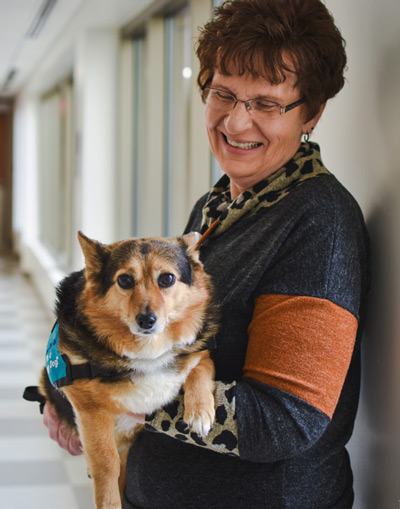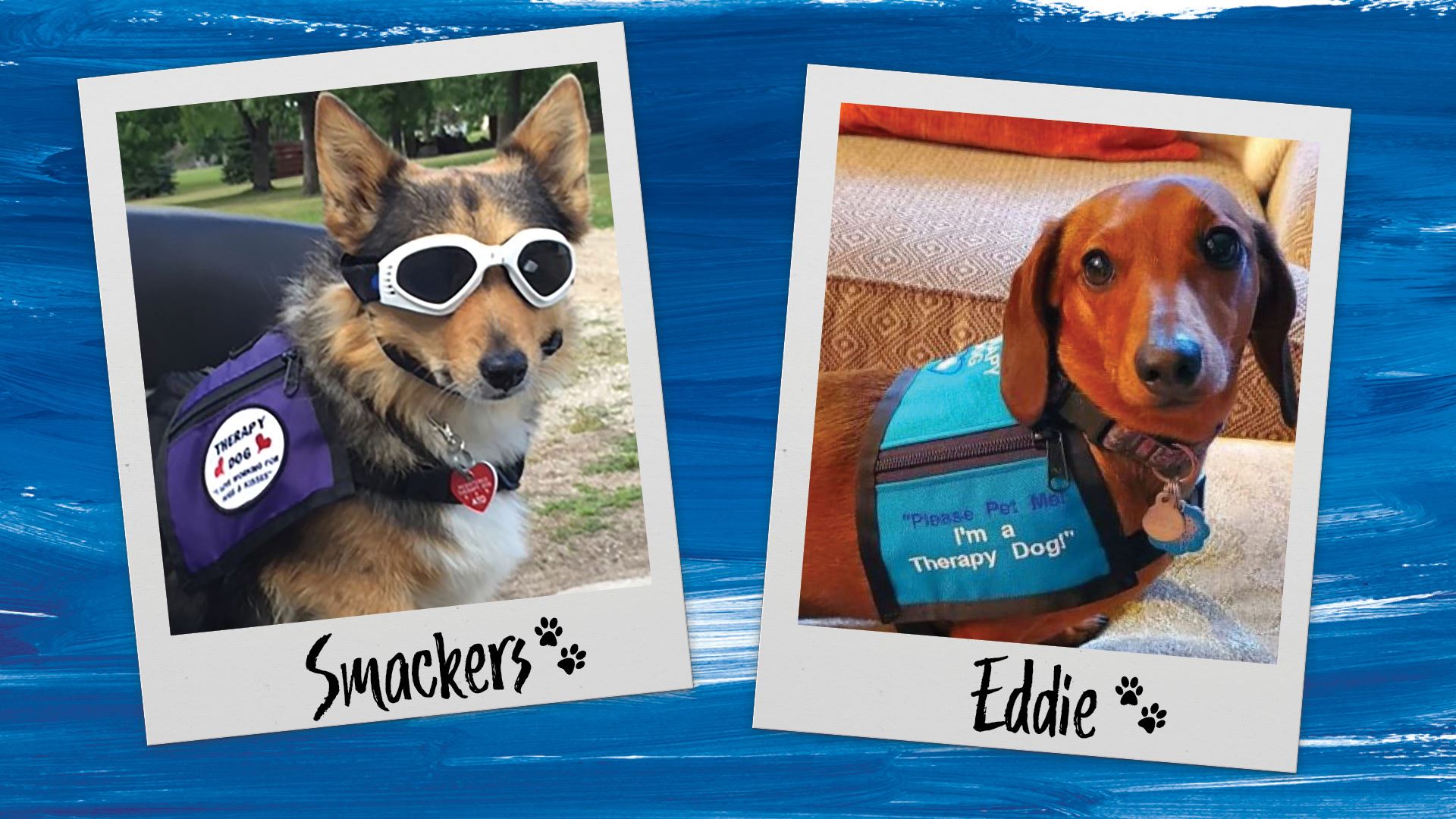Volunteers Who Are Doggedly Determined to Help Patients in Willmar
Whether CentraCare volunteers have two legs or four legs, they all have big hearts!
In honor of National Volunteer Month, we want to introduce you to a couple of therapy dogs and their human sidekicks who visit Willmar area patients.
Therapy dogs, also referred to as comfort dogs, help a person who may be going through mental, emotional or physical challenges. They help deliver a sense of calmness and restfulness to an otherwise stressful situation. They are not to be confused with working Service Animals or Emotional Support Animals (ESA).
Therapy dogs are trained to be obedient. To volunteer, they must go through extensive training for a variety of difficult situations and pass a test. Funding for the training is paid in part by CentraCare Foundation.
Meet Londa Burns and her Dachshund, Eddie
.jpg) “Eddie seemed to need a job or purpose,” Londa said. “She’s not well trained and not highly trainable, but she’s smart and intuitive. Dachshunds are very personable and comical, thriving on attention so, as a breed, they are a good fit for therapy visits. She’s a cool little dog and I loved the idea of sharing her.
“Eddie seemed to need a job or purpose,” Londa said. “She’s not well trained and not highly trainable, but she’s smart and intuitive. Dachshunds are very personable and comical, thriving on attention so, as a breed, they are a good fit for therapy visits. She’s a cool little dog and I loved the idea of sharing her.
“It’s truly a gift to see how happy she makes people. It’s hard not to smile or even laugh when you see a wiener dog bounding toward you! I love her dedication. She works hard to act casual on a lap that’s not always comfortable and accepts pets and scratches that don’t always reach what’s itchy. She has a generous spirit on visits. It’s almost like she knows it’s not for her or about her and she has a job to do. At home, she’s certain everything is about her.
“When I put her little vest on, she races to the car. And when we arrive at our destination, she drags me through the doors and is eager to greet anyone who gives her a glance. We’re a team, but she’s the star.
“We’re building relationships that will not be long lasting and that can feel sad. Eddie has a simple philosophy though and that is everyone she meets is her new best friend — even if forever is an hour or a day. She loves them without hesitation.
“As I said, Eddie is not obedient or particularly well-trained. She barks at the breeze and has chewed hundreds of dollars in phone chargers, but she has a generous heart and makes everyone around her feel loved. She teaches me that we don’t have to be perfect to love perfectly.”
Meet Julie Urke and her Corgi, Smackers
 “Some of my loved ones previously received Hospice care, and I knew I wanted to volunteer and give back to this amazing program,” Julie said. “In 2017, a local newspaper ad for Hospice Canine Therapy teams caught my eye. I recognized that wherever Smackers went, she seemed to put a smile on people’s faces. She would give undivided attention to those who were petting her. I believed Pet Therapy might be the area for us to volunteer since Smackers seemed to have the required personality for the role.
“Some of my loved ones previously received Hospice care, and I knew I wanted to volunteer and give back to this amazing program,” Julie said. “In 2017, a local newspaper ad for Hospice Canine Therapy teams caught my eye. I recognized that wherever Smackers went, she seemed to put a smile on people’s faces. She would give undivided attention to those who were petting her. I believed Pet Therapy might be the area for us to volunteer since Smackers seemed to have the required personality for the role.
“It is just priceless to see the joy and comfort a therapy dog brings to people and their families. Animals have a calming effect on many. For a few minutes, that person is free from their pain and worries while they pet, talk, and bond with the therapy dog. Some tell the dog things they aren’t able to share with others. A patient’s wife shared the only time her husband smiles anymore is when Smackers comes to visit. Another patient asked Smackers directly if she likes to play in the snow and wondered how many Valentine’s cards she received.
“Our visits offer entertainment, distraction and a welcome change from routine. During warm weather, we often arrive at our visits on a motorcycle. This brings an added smile to the patients and their loved ones.
“Being a Hospice volunteer is so rewarding. I have formed life-long friendships with other volunteers as well as some of the families. If you have a few minutes to spare each week/month, have a listening ear and want to help others, please consider being part of the CentraCare Hospice Program.”
